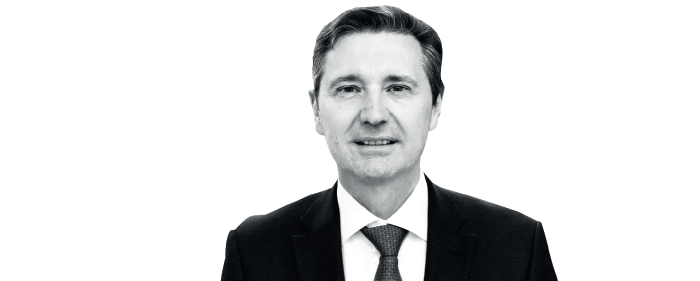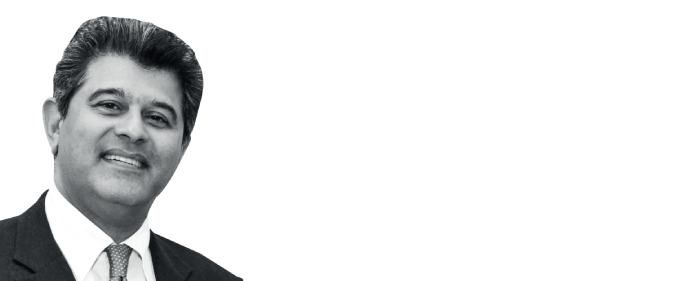
We asked ophthalmologists to tell us how their professional and personal lives have changed during the COVID-19 pandemic.
Read the first installment of Pandemic Diaries here
Arthur Cummings, Medical Director, Wellington Eye Clinic, and Consultant Ophthalmologist, Beacon Hospital, Dublin, Ireland
The rate of change is the single most dominant thought in my mind over the last few days. We all live in the modern world that is fast moving, and as physicians and surgeons (and in many cases clinic owners), we are used to making decisions on the fly. Right now, however, these significant decisions are passing by at the fastest pace that I have witnessed outside of a rugby match or a conflict situation. I am thinking that our greatest assets in the near future will be remaining positive, flexible and adaptive, and knowing that the new normal over the next few months is going to be continuous change.
Since the outset of this pandemic, we gradually accepted the fact that we were going to shut down the clinic and stop conducting elective procedures until things were normal enough again and our practice could continue. In high-cost practices, such as cataract and refractive centers, the only way to make ends meet has been to ensure that there is adequate volume.
The term “social distancing” was basically unheard of just a few months ago and now it is on everybody’s lips; and the concept is not going to disappear once this particular virus has gone. So, our new clinics will have to take this into account and arrange to see people with more space between their appointments, creating less traffic in the clinic. I will probably have to alternate between surgical cases and clinic patients all the time, every day. In this way, the entire clinic space would be utilized, but the number of people in each space would be halved. However, with so many people being out of work, it is very likely that the demand for elective surgery is going to drop significantly. More so than ever before, we are going to have to differentiate ourselves from our competition.
At least, this was my plan until last week.
Last week, the Health Service Executive (HSE) in Ireland announced that every single private hospital was being taken over by the public service or HSE. And that means the private practice has basically disappeared overnight. If you treat your private patient’s cataract in one month’s time, when operating theaters are potentially open again, you will not be paid for it by the health insurer; the only cases being done for the foreseeable future are going to be public service cases. The entire population of Ireland is now being serviced by the public health service. Private practice consultants have been offered temporary locum positions within the HSE for three months or longer, but it may not be in their specialty or in the hospital that they normally work in. Should you decide not to participate in the locum opportunity, it may appear as though you are self-serving and don’t care about the community. Should you decide to take on the locum position, you now do not have enough time to work on your business plan to survive this downtime for you and your (often numerous) staff members. In practice, it is Hobson’s choice. Only time will tell whether you made the right call or not. It’s a decision that one must make quickly, and then move on with conviction.
We all know that this is temporary, and we know a lot more about the anticipated recovery than we did with the financial crash of 2008. We are going to flatten the curve and then – once we come out of the first hit from the virus – we will have new waves of people being infected, but it will be far less damaging than the current episode. My fear is that COVID-19 will have a little brother called COVID-20 next year and, until we get a vaccine in large-enough volumes, we are going to be managing our businesses and practices in a COVID environment. In the meantime, we may find ourselves with a changed mindset about the things that are really important to us; we may discover how much people really mean to us, and that health is truly our greatest asset.
Meanwhile, all we can do is believe in the future and do whatever we can to make it as bright as possible.
Sheraz Daya, Medical Director, Centre for Sight, UK
These are truly unusual times. The rapidity and suddenness with which events have taken place – along with day-to-day status changes of each nation – point to one word: unprecedented. The same word describes the level of future uncertainty. We’ve all had to think on our feet, learning to deal with issues as they come along.
The impact on my own practice has been devastating, with almost no revenue coming in over the last two weeks, with a slowdown in the week prior to the formal “lockdown.” With two surgical sites and an additional satellite site (in the midst of a build-out and relocation), we have had to act very quickly.
There are three main areas that we considered: our patients, our staff, and business continuity.
I. Our patients. The primary concern, when dealing with elderly patients in particular, has been to avoid putting them in a situation of compromise, balancing their increased risk of contracting an infection with the severity of their eye problems. We made the decision very early to formally shut down; at the same time, many patients were sensibly canceling their appointments. We needed to schedule a surgical session to accommodate two corneal transplants, as well as several patients who came for treatment from overseas. The transplants were performed successfully, and bilateral sequential cataract surgery was performed on cataract patients on the final surgical list. Patients were seen the next day, using face masks and eye protection, with a complete alcohol clean-up of all points of contact between them. Following the shutdown, we have continued to see a few emergency patients and acute follow-ups, and performed bilateral cataract surgery in one patient with impending angle closure and high pressures.
We are currently putting in place a process for telemedicine for our existing and new patients who wish to be “seen,” with a clear understanding that this type of consultation does not replace a face-to-face appointment and direct examination with appropriate investigations.
II. Our staff. Safety and well-being of staff was addressed by the provision of N95 masks, along with eye protection, prior to the lockdown. We also designed and manufactured Perspex shields for installation on our slit lamps, YAG lasers, and ophthalmic investigative devices, so all technicians and ophthalmologists evaluating patients were protected. As there was a decrease in activity, most clinical staff stayed at home and we conducted trials of administrative staff working remotely. We implemented telephone redirection, establishment of virtual private networks (VPNs), and conducted meetings via Zoom. We were essentially ready by the time the formal lockdown was announced in the UK. Since then, the majority of our staff have been furloughed, with only a skeleton crew available to deal with back-office activities, including patient scheduling, marketing, and management.
I have to say, it has at least been a good time to accomplish much on the “To Do” list of non-clinical processes and projects. Part of the skeleton crew includes clinical staff to triage clinically-related calls, and assist in emergency clinics and surgery. Staff understanding and level of cooperation in helping out with the current situation has been nothing short of impressive and I am very grateful and wish to thank them all.
III. Our business continuity. Addressing this topic has been very challenging. We have been very fortunate in having the UK government announce a grant/subsidy for all furloughed workers to 80 percent of their salary (including national insurance and pension contributions) up to £2500 per month. This has been a tremendous relief as staff salaries are a large component of overhead costs – the case for many similar practices. Suspension of loan and mortgage payments has also been negotiated with our supportive bankers, further reducing cash burn and helping survival. Nevertheless, there are still considerable outgoing costs, many of which will have to be absorbed with unquestionable impact on working capital.
When I think about the future, I have no doubt that life is going to change at least for the next two years until reliable tests are available and a vaccine has been developed or if we have indeed developed the desired “herd immunity.” Immediate changes are probably going to include acceptance of telemedicine, particularly for vulnerable elderly patients. I expect there will be (and I look forward to) even more collaboration with optometric sources of referral, with investigations and evaluations taking place at local optometric practices with follow-up contact by ophthalmologists. We’ve developed a portal that will help the process – and it’s ready for roll-out. There will be more bilateral sequential cataract surgery and one-stop cataract surgery with patients being evaluated and treated on the same day. This will require good processes for prior counseling and consent, which many practices (including ours) already have in place. We will undoubtedly face more challenges, but we are certainly looking forward to getting back to work. I am hopeful that readily available – and reliable – antibody and PCR testing will be a game-changer that permits many (perhaps with “COVID-19 Immune identity cards”) to begin their journey towards “the new normal.”

If you’d like to let us know how the COVID-19 pandemic has affected your life and work, please email aleksandra.jones@texerepublishing.com
